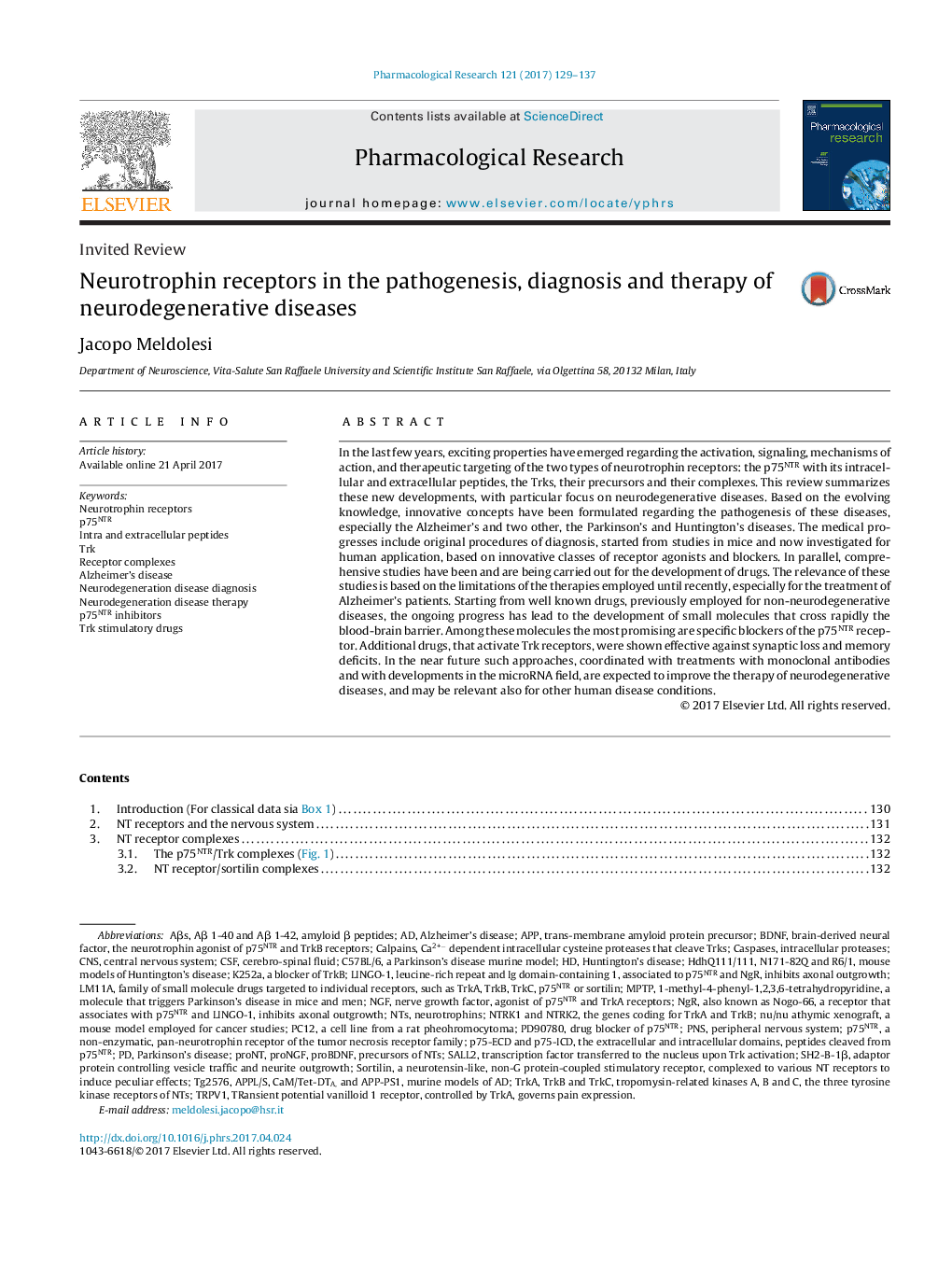| Article ID | Journal | Published Year | Pages | File Type |
|---|---|---|---|---|
| 5557268 | Pharmacological Research | 2017 | 9 Pages |
In the last few years, exciting properties have emerged regarding the activation, signaling, mechanisms of action, and therapeutic targeting of the two types of neurotrophin receptors: the p75NTR with its intracellular and extracellular peptides, the Trks, their precursors and their complexes. This review summarizes these new developments, with particular focus on neurodegenerative diseases. Based on the evolving knowledge, innovative concepts have been formulated regarding the pathogenesis of these diseases, especially the Alzheimer's and two other, the Parkinson's and Huntington's diseases. The medical progresses include original procedures of diagnosis, started from studies in mice and now investigated for human application, based on innovative classes of receptor agonists and blockers. In parallel, comprehensive studies have been and are being carried out for the development of drugs. The relevance of these studies is based on the limitations of the therapies employed until recently, especially for the treatment of Alzheimer's patients. Starting from well known drugs, previously employed for non-neurodegenerative diseases, the ongoing progress has lead to the development of small molecules that cross rapidly the blood-brain barrier. Among these molecules the most promising are specific blockers of the p75NTR receptor. Additional drugs, that activate Trk receptors, were shown effective against synaptic loss and memory deficits. In the near future such approaches, coordinated with treatments with monoclonal antibodies and with developments in the microRNA field, are expected to improve the therapy of neurodegenerative diseases, and may be relevant also for other human disease conditions.
Graphical abstractDownload high-res image (116KB)Download full-size image
